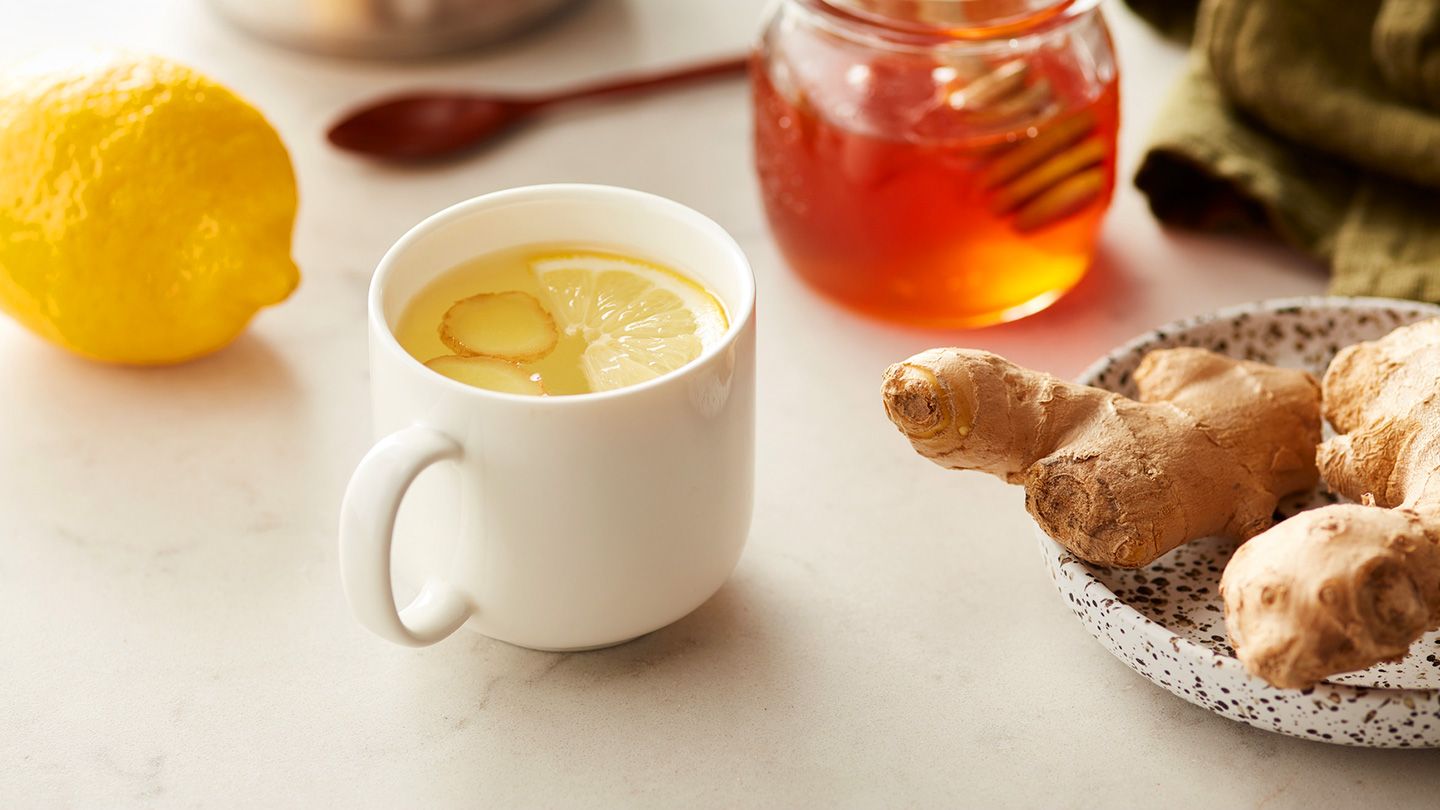Sinus infections, also known as sinusitis, are a common health issue that affects millions of people worldwide. This condition can cause uncomfortable symptoms, such as facial pain, pressure, congestion, and headaches. While conventional treatments like antibiotics are often prescribed, many individuals are seeking natural alternatives to alleviate their symptoms and promote healing. Herbal remedies have long been recognized for their therapeutic properties and have emerged as promising options for sinus infection relief. These natural approaches aim to alleviate congestion, reduce inflammation, and support the body’s natural defenses. In this article, we will explore a comprehensive range of herbal remedies that can be incorporated into a holistic approach to manage sinus infections and bronchitis. We will discuss their mechanisms of action, potential benefits, and safety considerations.
Understanding Sinus Infections

Sinus infections occur when the cavities (sinuses) that are located within the bones surrounding the nose become inflamed and swollen. This inflammation can be caused by a variety of factors, including bacterial, viral, or fungal infections, allergies, or environmental irritants. The blockage of sinuses due to inflammation leads to the buildup of mucus, causing pressure and pain. This condition can also make it difficult to breathe, leading to discomfort and difficulty in carrying out daily activities.
There are several types of sinus infections, such as acute sinusitis, chronic sinusitis, and recurrent sinusitis. Acute sinusitis usually lasts for a short period of time, while chronic sinusitis is characterized by recurring episodes of sinus infection that last for more than 12 weeks. Recurrent sinusitis occurs when individuals experience multiple episodes of sinusitis within a year.
Some common symptoms of sinus infections include:
- Facial pain and pressure
- Nasal congestion and blocked nose
- Headache
- Loss of smell
- Cough
- Fever
- Fatigue
While conventional treatments, such as antibiotics, can help in managing sinus infections, they may also have side effects and contribute to antibiotic resistance. This has led many individuals to seek natural remedies for sinus infection relief.
Herbal Remedies for Sinus Infections
Herbal remedies have been used for centuries to treat various health ailments, including sinus infections. These natural remedies are known for their therapeutic properties and have gained popularity as a safer alternative to conventional treatments. They can be incorporated into a holistic approach to managing sinus infections, promoting healing, and preventing recurrent episodes. Let’s take a look at some of the most effective herbal remedies for sinus infections.
Echinacea
Echinacea is a popular herb that has been traditionally used to treat respiratory tract infections, including sinusitis. It is derived from the purple coneflower plant and is available in various forms, such as extracts, teas, and supplements. This herb is known for its immune-boosting properties and can help in reducing inflammation and fighting off infections.
Several studies have shown that echinacea can be effective in reducing the severity and duration of sinus infections. A 2015 study published in the International Journal of Clinical Pharmacy found that echinacea extract was able to significantly reduce acute symptoms of sinusitis and improve quality of life in participants. Another study published in the journal Phytomedicine showed that a combination of echinacea and propolis (a resinous substance produced by honeybees) was more effective than a placebo in treating acute viral sinusitis.
Echinacea is generally considered safe for short-term use, but it may interact with certain medications, including immunosuppressants. Therefore, it is important to consult with a healthcare provider before incorporating this herb into your treatment plan.
Ginger
Ginger is a well-known spice that is widely used in traditional medicine to treat various health conditions, including respiratory infections. It contains gingerol, a compound that has anti-inflammatory and antioxidant properties, making it an effective remedy for sinus infections. Ginger can help in reducing inflammation in the sinuses, alleviating congestion, and promoting mucus drainage.
A study published in the journal Phytotherapy Research found that ginger extract was able to reduce nasal congestion and improve quality of life in individuals with chronic rhinosinusitis (inflammation of the nose and sinuses). Another study showed that ginger was effective in treating acute sinusitis when combined with other herbal extracts.
Ginger can be consumed in various forms, such as fresh, powdered, or in teas. It is generally safe for most people, but it may interact with blood thinning medications, so it is important to consult with a healthcare provider before using ginger if you are on any medication.
Turmeric
Turmeric, also known as Indian saffron, is a spice commonly used in cooking. It contains curcumin, a compound with powerful anti-inflammatory and antioxidant properties. These properties make turmeric an effective remedy for sinus infections. Turmeric can help in reducing inflammation in the sinuses, relieving pain and pressure, and boosting the immune system.
A study published in the Journal of Herbal Medicine showed that a combination of turmeric and black pepper was able to reduce sinus symptoms and improve quality of life in individuals with chronic rhinosinusitis. Another study published in the European Review for Medical and Pharmacological Sciences found that curcumin was able to inhibit the growth of bacteria commonly associated with sinus infections.
Turmeric can be consumed in various forms, such as fresh, powdered, or in supplements. It is generally considered safe for most people, but high doses may cause stomach upset. It may also interact with certain medications, so it is important to consult with a healthcare provider before incorporating turmeric into your treatment plan.
Peppermint
Peppermint is a widely used herb that is known for its cooling and soothing effects. It contains menthol, a compound that can help in reducing inflammation, relieving congestion, and promoting mucus drainage. Peppermint also has antimicrobial properties, which can help in fighting off infections.
A study published in the Journal of Ethnopharmacology found that peppermint extract was effective in reducing nasal congestion and improving quality of life in individuals with chronic rhinosinusitis. Another study showed that peppermint oil had antibacterial activity against bacteria commonly associated with sinus infections.
Peppermint can be consumed as a tea or used topically as an essential oil. It is generally considered safe for most people, but it may cause side effects in some individuals, such as heartburn and allergic reactions. It may also interact with certain medications, so it is important to consult with a healthcare provider before using peppermint if you are on any medication.
Other Herbal Remedies
Apart from the herbs mentioned above, there are several other herbal remedies that can help in managing sinus infections. These include:
Garlic
Garlic has potent antimicrobial properties that can help in fighting off infections. It can also support the immune system and reduce inflammation in the sinuses.
Goldenseal
Goldenseal is a herb that has been traditionally used to treat respiratory infections. It contains berberine, a compound with antimicrobial and anti-inflammatory properties.
Elderberry
Elderberry has been shown to have antiviral properties and can help in boosting the immune system. It can be especially helpful in treating viral sinus infections.
Marshmallow Root
Marshmallow root contains mucilage, a substance that can help in lubricating and soothing the throat, making it beneficial in managing cough associated with sinus infections.
It is important to note that while these herbal remedies may provide relief from sinus infection symptoms, they should not replace conventional medical treatment. It is always best to consult with a healthcare provider before incorporating any herbal remedies into your treatment plan.
Safety Considerations
While herbal remedies are generally considered safe, they may cause side effects or interact with certain medications. It is important to consult with a healthcare provider before using any herbal remedies, especially if you are on medication or have any underlying health conditions. Pregnant and breastfeeding women should also exercise caution when using herbal remedies.
It is also important to purchase herbal products from reputable sources to ensure their quality and safety. Always follow the recommended dosage and do not exceed it unless advised by a healthcare professional.
Sinus infections can be uncomfortable and disruptive to daily life. While conventional treatments like antibiotics are often prescribed, natural remedies have gained popularity as effective alternatives for managing sinus infection symptoms. Herbal remedies, such as echinacea, ginger, turmeric, and peppermint, have anti-inflammatory, antimicrobial, and immune-boosting properties that can help in reducing inflammation, promoting mucus drainage, and fighting off infections. However, these remedies should not replace medical treatment and it is always best to consult with a healthcare provider before incorporating them into your treatment plan. With proper usage and precautions, herbal helpers can provide fast relief and support healing from sinus infections.
